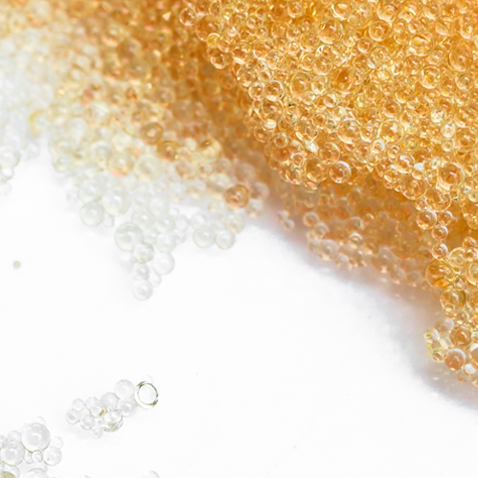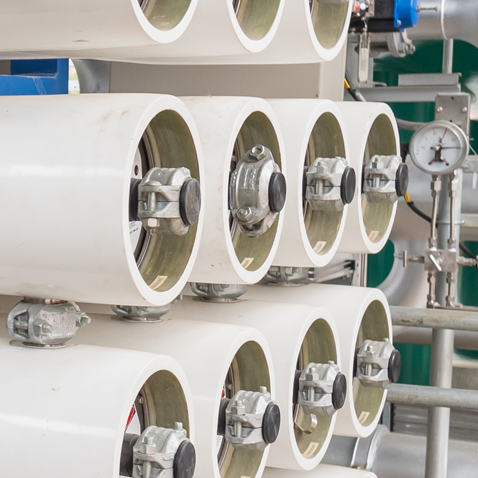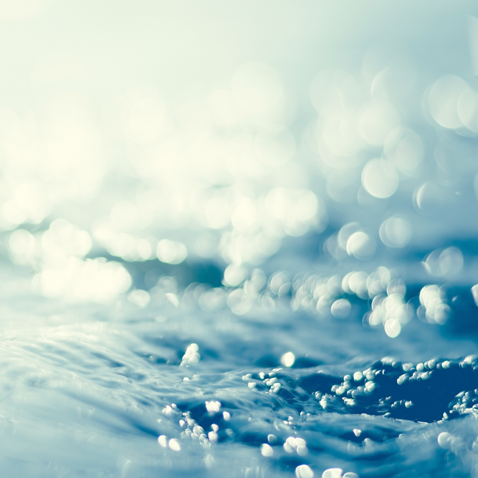Textiles
Textiles are in high demand — plants around the world produce a steady output of natural, synthetic, and nonwoven fabrics daily. The production of fabrics not only requires clean water, but also comprehensive wastewater treatment to recover and recycle water and valuable compounds, such as salt and dye. DuPont Water Solutions brings innovative and effective water and wastewater management to the textile industry to help its plants and facilities operate at peak levels. We can help reduce problematic solids, clean wastewater, and facilitate dye and salt removal or recovery with ultrafiltration, nanofiltration, and reverse osmosis technologies.
Ion Exchange


Our Amberlite ion exchange resins offer industrial softening, demineralization, and polishing of demineralized water for more stringent textile applications.


Filmtec RO and Fortilife MLD technologies provide an industry-leading, high performance and cost-effective solution for textile applications. Water used for processing dyed compounds can be too diluted for direct reuse due to a mix of colors and other impurities. Because dyeing processes take place at elevated temperatures, the treatment of textile wastewater requires high-temperature technology. Our proven Fortlife minimum liquid discharge and NF filtration technologies help plants treat textile wastewater so that it can be recycled for operational efficiency.


Nanofiltration elements in the textile industry is key to supporting the sustainable creation of fabrics through effective water treatment and wastewater reuse. Water used for processing dyed compounds can be too diluted for direct reuse due to a mix of colors and other impurities. Because dyeing processes take place at elevated temperatures, the treatment of textile wastewater requires high-temperature technology. Our proven filtration technologies help textile plants treat textile wastewater so that it can be recycled for operational efficiency.
Reverse Osmosis


EDI technology is a smart alternative to, and effective replacement of, conventional mixed bed ion exchange. And since electricity is EDI’s only consumable, this method of permeate polishing does not produce a hazardous waste stream, allowing power plants to produce continous high purity water while saving time, money, and space. DuPont EDI-210 and EDI-310 ion exchange modules contain a gaussian, gel, strong base anion exchange resin for industrial demineralization.
Nanofiltration
Electrodeonization
Ion Exchange


Our Amberlite ion exchange resins offer industrial softening, demineralization, and polishing of demineralized water for more stringent textile applications.
Reverse Osmosis


Filmtec RO and Fortilife MLD technologies provide an industry-leading, high performance and cost-effective solution for textile applications. Water used for processing dyed compounds can be too diluted for direct reuse due to a mix of colors and other impurities. Because dyeing processes take place at elevated temperatures, the treatment of textile wastewater requires high-temperature technology. Our proven Fortlife minimum liquid discharge and NF filtration technologies help plants treat textile wastewater so that it can be recycled for operational efficiency.
Electrodeonization


EDI technology is a smart alternative to, and effective replacement of, conventional mixed bed ion exchange. And since electricity is EDI’s only consumable, this method of permeate polishing does not produce a hazardous waste stream, allowing power plants to produce continous high purity water while saving time, money, and space. DuPont EDI-210 and EDI-310 ion exchange modules contain a gaussian, gel, strong base anion exchange resin for industrial demineralization.
